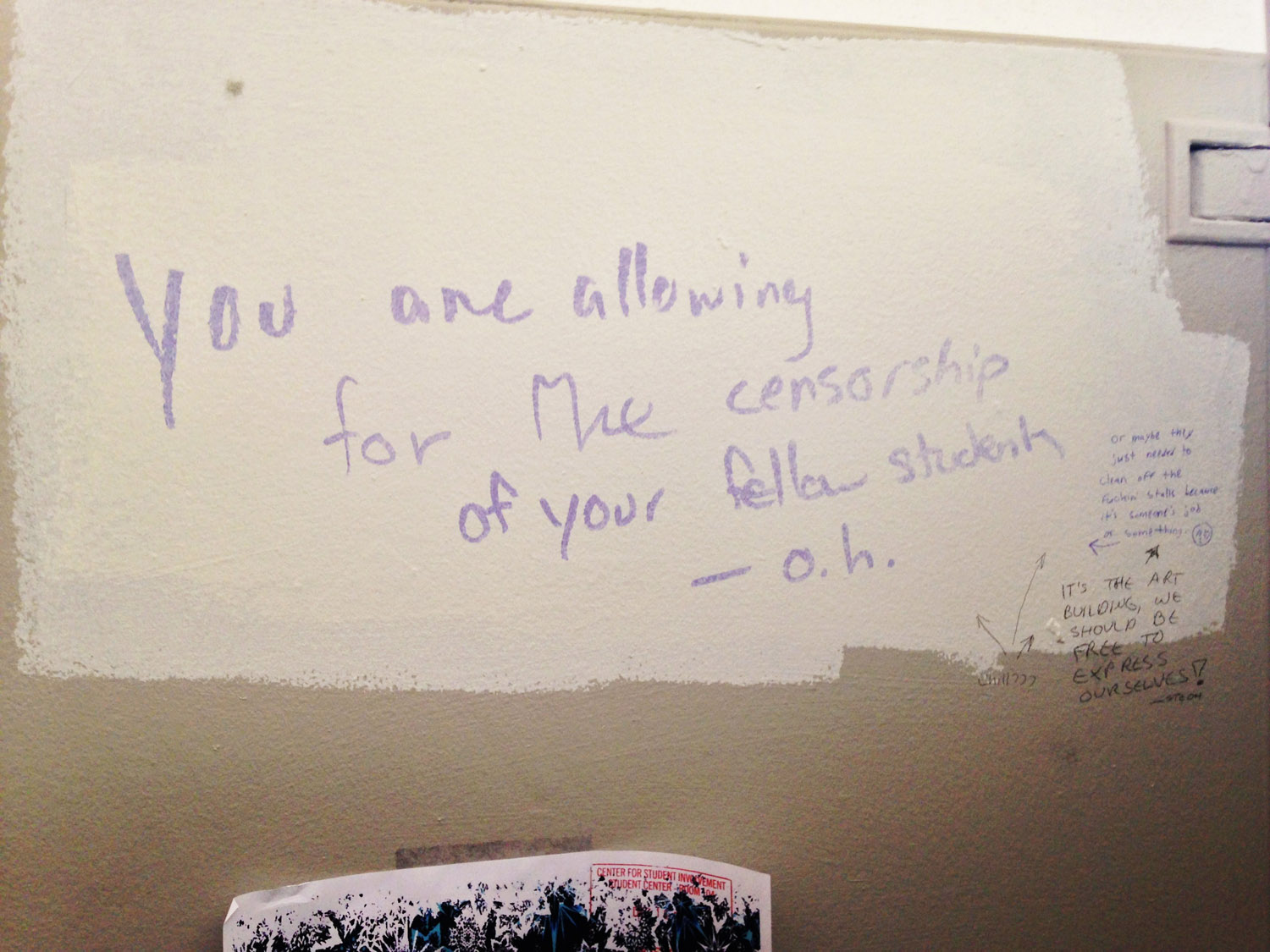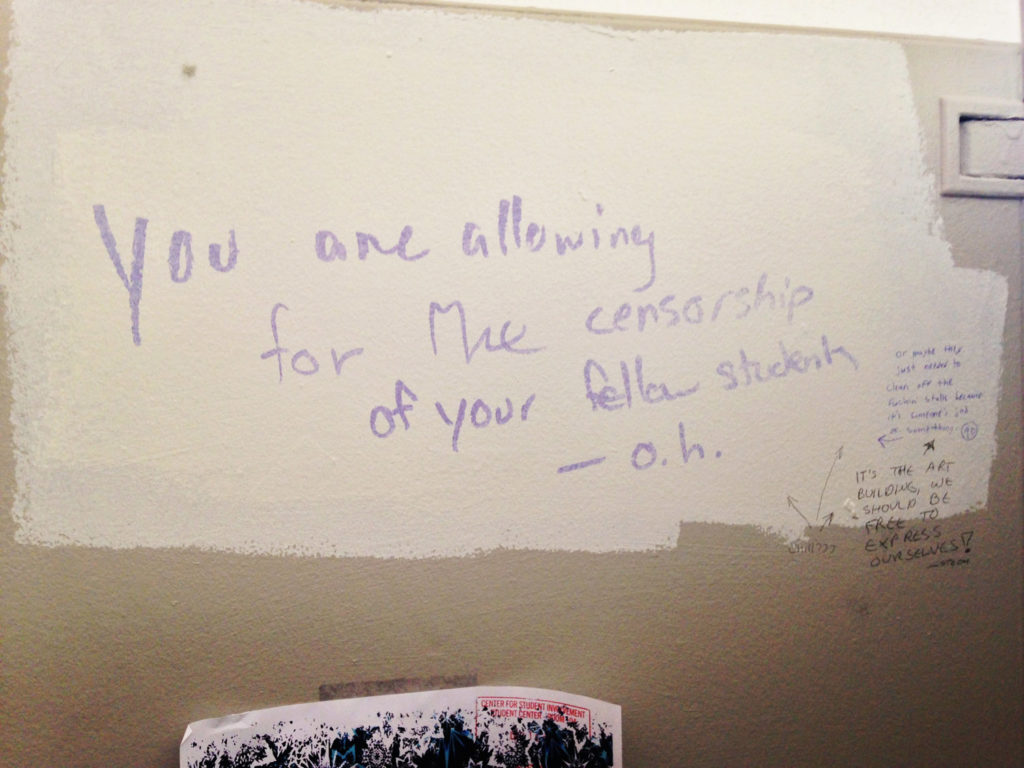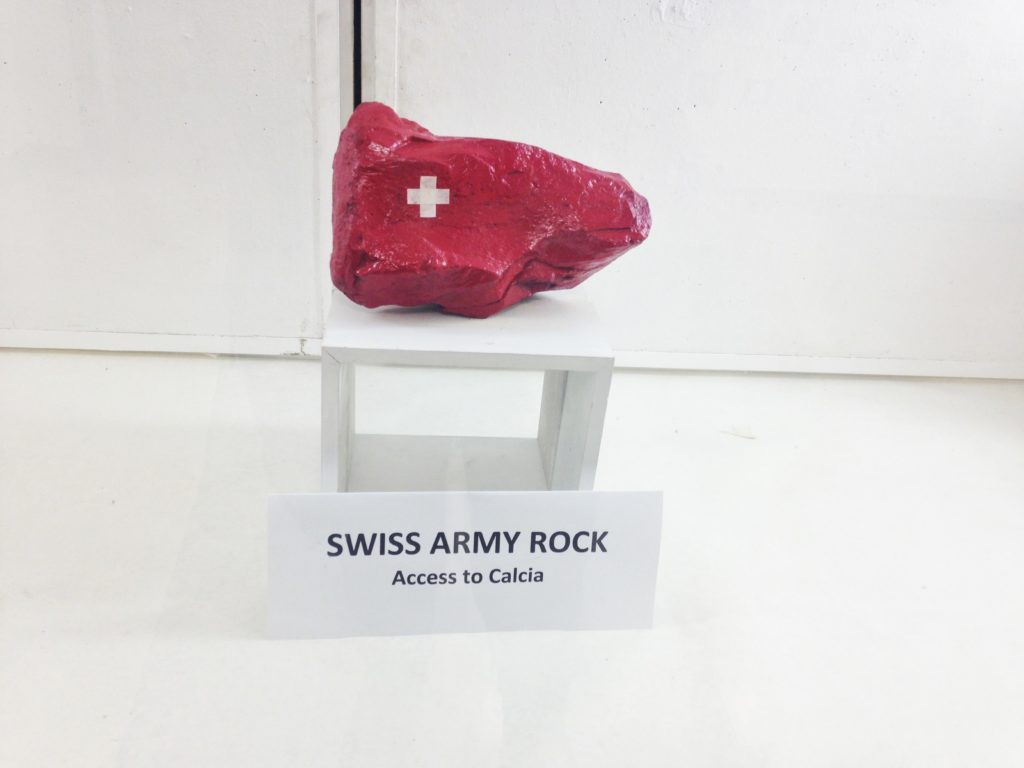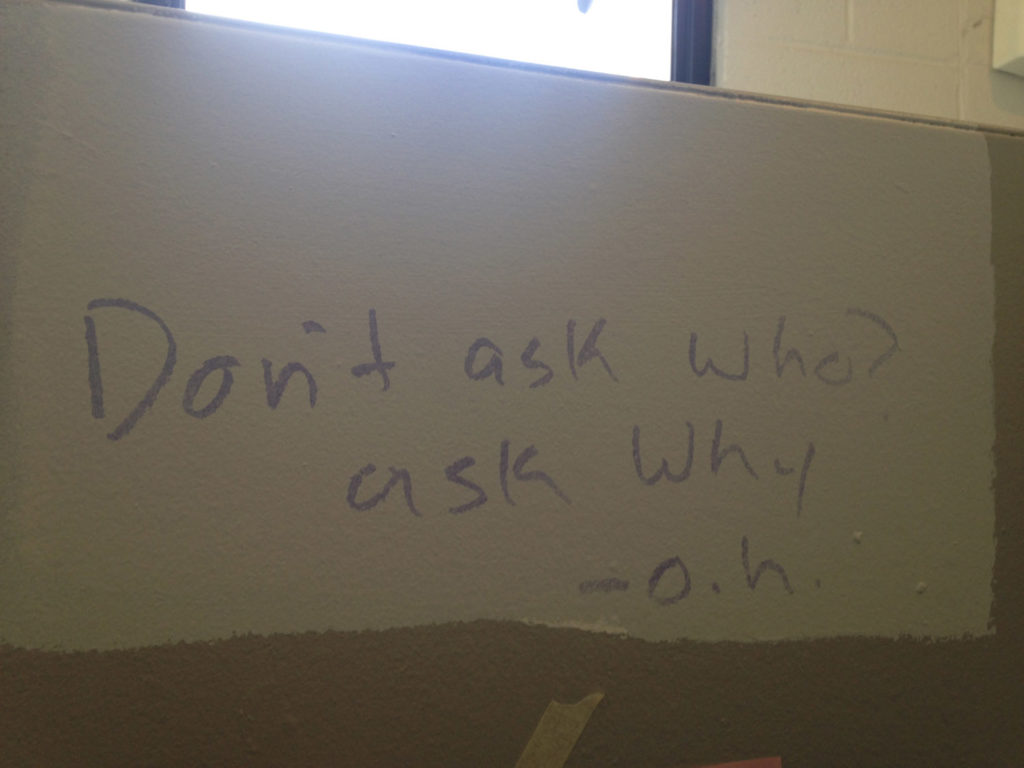The UPD-proclaimed vandal, known by the initials o.h., has left another mark of disapproval, now within the walls of Calcia Hall. It is unclear when these writings, displayed on both female and male bathroom stalls, were placed, but o.h. has been unfailingly adamant about the key message.
The notes were as follows: “Don’t ask who, ask why?”, “You are allowing for the censorship of your fellow students” and “You [the University Police Department] are now treating the message as a criminal offense when we are not criminals terrorizing the school we are your own students trying to be heard.” Other messages were painted over, but, because of the scant coat, it looks like they were similar to the other stalls’ key points about the university’s lack of regard for its art students.
These messages are the latest in a series of complaints expressed through grafitti, the first of which appeared on the outside of Calcia Hall at the end of the fall 2016 semester. The anonymous voice behind these messages, o.h.., expressed the common frustrations of many art students at the university, which include the run-down state of the Calicia Hall as well as the building’s access regulations.
Robert Browning, a tenured professor at Montclair State who has been teaching for the past 44 years, commented about the original chalk graffiti on the outside of the building: “Evidently [the vandalism] happened on a Sunday. I saw [that the message] was still there at 10 a.m. on a Monday, but by 3 p.m. that same day, the message had been erased. [It] was the fastest thing I ever saw happen at Montclair State, ever. Either the chair or the Dean were unhappy and it is my understanding that they paid an outside contractor [to remove the message].”
According to Browning, art students used to have access to Calcia Hall, at any time of day or night, even on the weekends. In response to the new regulations put in place concerning hours and guidelines for access to the building, some professors wondered why students would need admission past 11 p.m. Browning exclaimed, “Good God, they’re kids! We’re old!”
According to their complaints, often students who need access to the various studios in Calcia Hall have their own schedules to work around, not to mention the fact that, if one mistake is made on a project, many must start again from scratch. Most students need to be in the studios with provided equipment in order to work. These are graded projects and are unlike a paper or assignment from other departments within Montclair State that can be easily edited in a timely manner to meet deadline.
Student Sandra Lacastesantos posted on a Calcia Hall Facebook page, addressing the administration, “There is no reason that the doors to Calcia should be locked to students who PAY to use these studios. Art students CANNOT do their homework outside of this building and locking us out is severely interfering with our work. We cannot just plan our schedules around when the building will be open.” She ended with, “I am furious that I even have to make this post.”
Considering the recent upgrades and new buildings at Montclair State, such as the Center for Environmental and Life Sciences, the Feliciano School of Business and the upcoming School of Communication and Media, Calcia Hall has been lacking an update, although it has been granted to other facilities.
On Feb. 1, an electrician came in to replace over 40 bulbs in Calcia that had not been working properly or even at all over an extended period of time.
“We live and breathe these rooms,” Browning said. “What works and doesn’t work in these rooms is a direct concern of ours.”
Art students, such as Nadine Ruiz and others, have previously mentioned being inadequately represented at the university. Browning felt “misrepresentation” wasn’t the proper word. “They’re poorly thought of,” he said. “The administration holds out a carrot. If you do this, this and this, we’ll give you a new building.”
Browning still describes both the art students and faculty as “fairly quiet,” because this is the first time in his experience at the university that the curriculum and Dean’s administration is being protested against, especially in such a public manner. “[The administration] expect[s] kids to have the same sensibilities that faculty do. There’s a big disconnect between [the administration and the students.]”






